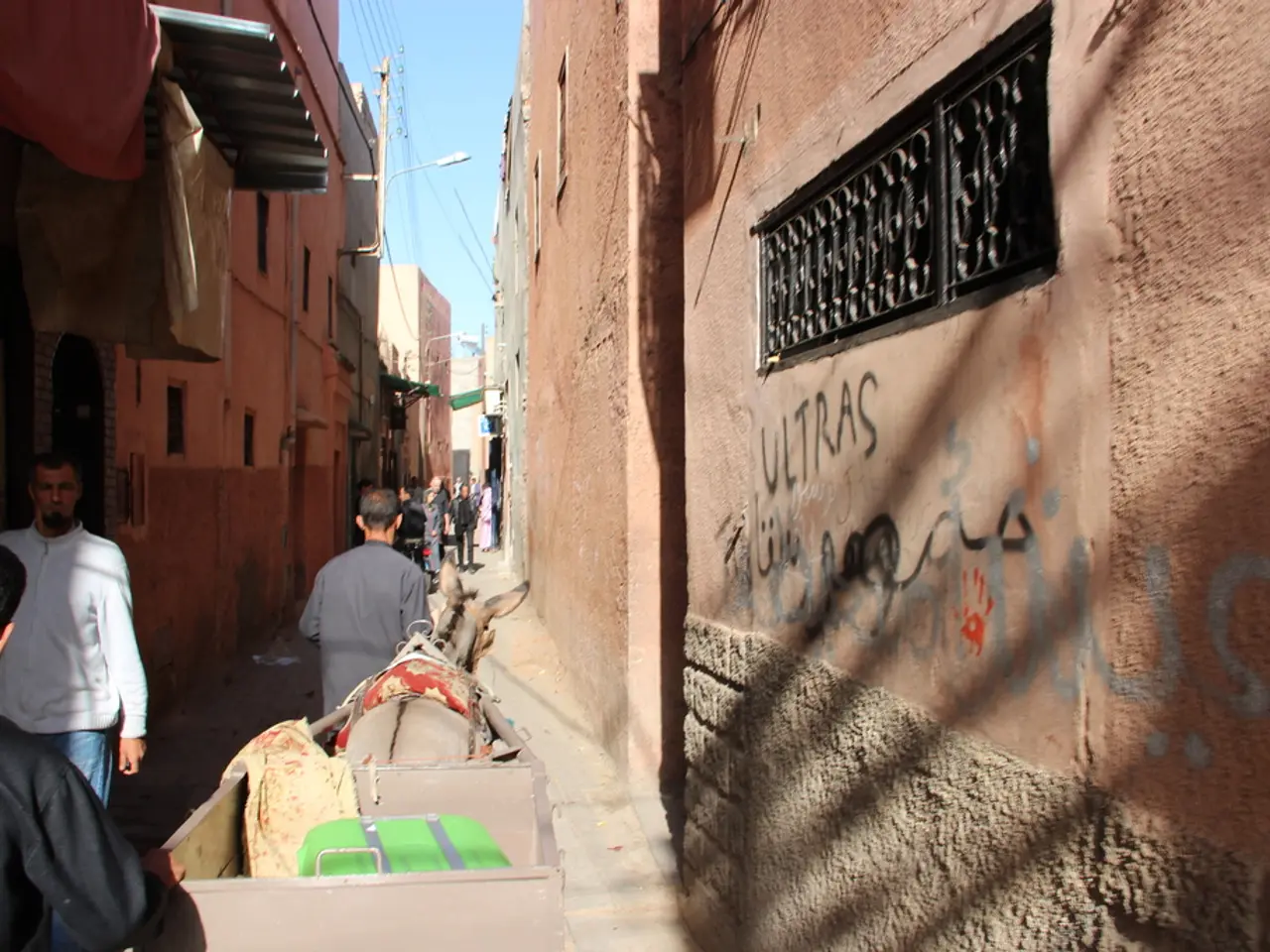Australia endangers U.S. displeasure by acknowledging Palestine as a state
Australia to Recognize Palestine at UN General Assembly
In a significant shift in Australian foreign policy, Prime Minister Anthony Albanese's Labor Party has announced its intention to formally recognize a Palestinian state at the upcoming United Nations General Assembly in September 2025. This decision breaks with the longstanding bipartisan position that Palestinian state recognition should only occur after a comprehensive peace process and two-state solution.
The move comes amidst a global shift, with 147 countries already recognizing Palestine. Australia aims to align with countries like France, Britain, and Canada, who have taken similar steps. The decision is also influenced by humanitarian concerns, particularly the ongoing suffering in Gaza where more than 2 million people face famine due to Israel's deliberate withholding of humanitarian aid. Nearly 12,000 children under five face acute malnutrition, according to the World Health Organization.
However, the decision has provoked diplomatic repercussions. Israel has retaliated by cancelling visas of Australian diplomats and Israeli officials, and Prime Minister Benjamin Netanyahu has accused Albanese of betraying Israel and the Australian Jewish community. The US, Israel's staunchest ally, has expressed concerns, and the opposition warns the recognition may embolden Hamas, which still controls Gaza, complicating hostages’ return and conflict resolution.
Despite these concerns, the Labor Party views formal recognition as a step toward advancing Palestinian rights and pressuring for conflict resolution, even if conditions are not yet ideal. The decision has been met with domestic political division, with Conservative opposition leader Sussan Ley criticizing the announcement, saying it puts Australia at odds with the United States, its most important ally.
The Labor Party's stance on Palestine is not new. There has always been factional support within the party for recognizing a Palestinian state, even before the October 2023 attacks. The party sees a two-state solution as humanity's best hope to break the cycle of violence in the Middle East and to bring an end to the conflict, suffering, and starvation in Gaza.
Meanwhile, there have been regular protests in Australia against Israel's actions in Gaza, with over 100,000 people marching in support of the Palestinians over the Sydney Harbour Bridge. The unpredictability of the US foreign policy under President Trump creates an opportunity for other states like Australia to chart a different course.
As more information about Israel's actions becomes known, there is more disquiet amongst the community about the excesses and the unwillingness of democratic leaders to openly criticize or do anything substantive to another member of the club. The Labor Party's decision to recognize Palestine is a reflection of this growing discontent, and it remains to be seen how this will impact the ongoing conflict in the Middle East.
- Albanese to recognise Palestine at UN General Assembly
- Australia to formally recognise a Palestinian state
- Albanese's decision to recognise Palestine sparks diplomatic backlash
- Labor's Palestinian state recognition policy explained
- Netanyahu accuses Albanese of betraying Israel over Palestine recognition
- The Labor Party's intention to formally recognize a Palestinian state at the upcoming United Nations General Assembly (general-news) signifies a significant shift in Australian foreign policy regarding human rights (human rights).
- Amidst a global shift, with many countries recognizing Palestine, Australia aims to align with these countries in an attempt to address humanitarian concerns (human rights) arising from the ongoing conflict in Palestine (conflict).







